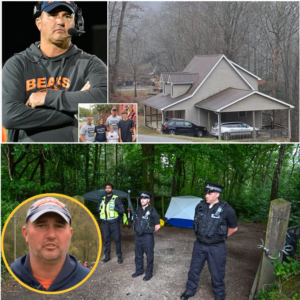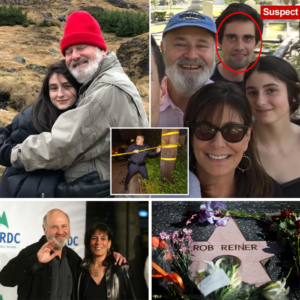LOS ANGELES – The neon glow of the Universal Studios Hollywood soundstage had barely dimmed when the crowd erupted into a thunderous standing ovation, their applause ricocheting off the rafters like a chorus of fireflies in flight. It was September 29, 2025, and in the midst of The Voice Season 28’s Blind Auditions, 28-year-old Cori Kennedy from the frost-kissed fields of Kasson-Mantorville, Minnesota, had just transformed a routine audition into a room-shaking revelation. Strumming her well-worn acoustic guitar, the unassuming country crooner delivered a cover of The Judds’ timeless “Why Not Me” that turned two chairs—Reba McEntire’s and Michael Bublé’s—and then, in a stroke of pure audacity, unveiled an original ditty so cleverly tailored to the coaches that it left legends like Snoop Dogg, Niall Horan, and the Queen of Country themselves leaping to their feet. But it was Bublé’s desperate, sock-revealing ploy that had the arena in stitches, even as Kennedy’s heart was already set on the redheaded icon who’d been her North Star since childhood.
Kennedy stepped onto the stage not as a polished Nashville import, but as a wide-eyed everyperson with calluses from farm chores and a day job slinging office chairs at a commercial furniture dealership. Hailing from a dot-on-the-map town where the population hovers around 2,800 and the biggest excitement is the annual Dodge County Fair, Cori grew up in a household where country radio was the soundtrack to supper and her grandma’s old cassettes spun tales of Naomi and Wynonna Judd. “Music was my escape hatch from the nine-to-five grind,” Kennedy shared in a pre-audition interview with NBC insiders, her voice carrying that warm Midwestern lilt laced with twang. “I’d sneak into the barn after work, guitar in hand, dreaming of stages bigger than my backyard bonfires.” At 28, with a handful of indie singles like “Hey Who Shot the Water Tower” and “Lawless” under her belt—self-released in March 2025 to modest streaming buzz—she’d packed her bags for Nashville just months earlier, chasing the neon dream on a shoestring budget and sheer stubborn hope.
The Blind Audition kicked off with classic country poise. As Carson Daly’s voice boomed the intro—”From Kasson-Mantorville, Minnesota, 28-year-old Cori Kennedy!”—she settled onto the stool, fingers dancing over the strings in a gentle intro that built like a prairie storm. Her take on “Why Not Me,” the 1984 hit that propelled The Judds to stardom, was no rote replication; it was a heartfelt reclamation. Kennedy’s voice started low and husky, evoking the ache of small-town longing, before soaring into those crystalline high ranges that pierced the air like a winter wind. The coaches, backs turned in ritual suspense, felt the pull immediately. Reba McEntire, the 70-year-old titan with 75 million albums sold and a resume that reads like country’s holy writ, hit her button first, her chair whipping around with a grin that lit up the monitors. Moments later, Michael Bublé— the velvet-voiced crooner whose jazz-infused pop has netted him Grammys and a Vegas empire—followed suit, his eyes widening in delight. Snoop Dogg and Niall Horan remained steadfast, their chairs silent sentinels, but the damage was done: two turns, a golden opportunity, and the stage now theirs to command.
What happened next, though, etched Kennedy’s name into The Voice lore faster than a viral TikTok. Instead of demurely awaiting the coaches’ pitches—the standard script of flattery and promises—she slung her guitar higher and announced, “Before y’all say a word, I’ve got somethin’ for you.” The arena hushed, sensing the pivot. With a mischievous sparkle in her eye, Kennedy launched into her original composition: a rollicking, rhyme-stacked tribute that name-checked each coach with the precision of a songwriter who’d binge-watched every season. “Well, I’m just a girl from a zero-stoplight town / Minnesota roots and wearin’ the hand-me-downs / Farm dreamin’ and in the dark / I step out and rejoice / My grandma won’t believe me that I’m singin’ on The Voice,” she began, her tone playful yet poignant, drawing the crowd into her orbit like fireflies to a porch light.
The verses unfurled like a love letter laced with laughter. For Snoop Dogg, the West Coast rap icon turned wine entrepreneur and The Voice veteran, she quipped: “Snoop, I didn’t grow up on your rhythm or your rhyme / But I know Willie Nelson, so I think we’ll be just fine.” The Doggfather threw his head back in a booming guffaw, his braids swaying as he nodded approval. Niall Horan, the Irish heartthrob whose One Direction days have evolved into solo sold-outs and a The Voice coaching gig, got a cheeky nod to boy-band nostalgia: “Niall, your Irish smile lit up my teenage days / I was only smitten for Harry in my One Direction phase.” Horan clutched his chest in mock heartbreak, mouthing “Ouch!” while flashing that trademark dimpled grin. Bublé earned a festive jab: “Mr. Bublé, you sing like a Christmas star / But have you ever tried to jumpstart a frozen Minnesota car?” The Canadian charmer winced theatrically, evoking images of his Vancouver winters clashing with Kennedy’s subzero survival tales.
But it was the stanza for McEntire that sealed the sorcery. “Miss Reba, you raised me right on that sitcom screen / A single mom who works two jobs, my redhead ‘Fancy’ queen,” Kennedy crooned, weaving in nods to Reba’s ’80s variety show—where the Oklahoma native juggled single-mom life with stardom—and her signature hit “Fancy,” a rags-to-riches anthem penned by Bobbie Gentry. McEntire’s eyes welled with visible emotion, her hand fluttering to her heart as the line landed like a homecoming hug. The song clocked in at just over two minutes, but its impact was seismic: As the final chord hummed, all four coaches surged to their feet—Snoop hollering “Give it to me!”, Horan whooping, Bublé clapping wildly, and McEntire dabbing at her eyes. The audience, a sea of 300 superfans and live-wire extras, joined in a standing ovation that Carson Daly later called “the loudest I’ve heard since Kelly Clarkson’s finale.” Even the crew in the shadows traded high-fives; this wasn’t just an audition—it was an event.
In the frothy chaos of coach deliberations, Bublé knew he was playing catch-up. A pop-jazz maestro with a penchant for holiday croons and zero country cred, he faced an uphill battle against McEntire, whose genre pedigree is as deep as the Grand Ole Opry. “Hi Cori,” he began, his voice that signature baritone silk. “You started off very low, then you started singing in the high ranges, and I was like, ‘Oh my God.’ It’s like country with a little mix of Stevie Nicks.” The Fleetwood Mac comparison drew appreciative murmurs—Kennedy’s raspy edges did evoke the White Witch’s ethereal grit—but Bublé wasn’t done. Leaning into the mic with conspiratorial flair, he hiked up his tailored trousers to reveal socks emblazoned with McEntire’s iconic face: red curls, sparkling eyes, repeated in a grid like some subversive fashion statement. “These are Reba McEntire socks, baby!” he proclaimed, flexing a foot for the cameras. “I’m all in on Team Reba—figuratively and literally!”
The studio dissolved into hysterics. Snoop doubled over, slapping his knee as he dubbed McEntire “Reba Magnet-ire—anytime country walks in, I’m out!” Horan snorted into his fist, while McEntire herself cackled, fanning herself with a cue card. “Michael, darlin’, that’s the sweetest sabotage I’ve ever seen,” she drawled, her Oklahoma twang dripping honeyed amusement. Kennedy, perched on her stool, dissolved into giggles, covering her face as the jumbotron zoomed in on Bublé’s Reba-clad calves. “I ordered ’em special for tonight—thought it’d give me an edge!” he defended through laughter, the moment pure The Voice alchemy: vulnerability wrapped in vaudeville, turning potential rivalry into rollicking camaraderie. Daly, ever the ringmaster, quipped from backstage, “It seems like a foregone conclusion,” and he wasn’t wrong.
Reba seized the spotlight with maternal grace. “I’m just so thrilled to be back on The Voice, and to hear your voice on that stage singing—it just took me back to Tennessee. Makes me homesick,” she said, her voice cracking with sincerity. “You’ve got that power, that clarity—it’s like bottled sunshine.” Probing gently, she asked about Kennedy’s performance roots. “Do you get to sing out much?” Cori confessed her constraints: “I share when I can, but the day job makes it tricky.” The admission hung poignant—a reminder that behind every stage dreamer lurks a real-world hustle—eliciting another wave of applause. McEntire sealed her pitch with an invitation straight from the heart: “Well, I would love to have you on my team. Welcome to The Voice.”
The choice was as inevitable as a harvest moon. Kennedy, beaming through happy tears, pointed squarely at McEntire. “Reba, from the girl who grew up on your records to the one standing here—it’s you.” The embrace that followed was electric: McEntire enveloping her in a cloud of Chanel No. 5 and sequins, whispering encouragements as confetti cannons primed for the next act. Bublé, gracious in defeat, tossed a playful wink: “Team Reba it is—those socks were worth it for the laugh.” Snoop and Horan piled on congrats, the panel a tableau of mutual admiration.
The ripple from Kennedy’s audition coursed through Nashville and beyond like a summer squall. By morning, clips of the original song had amassed 12 million views across NBC’s platforms, fans dissecting lyrics on Reddit and TikTok with fervor rivaling a Super Bowl halftime. “Cori just wrote the ultimate coach roast—sign me up for her album!” one viral thread exclaimed, while #RebaSocks trended with fan edits of Bublé’s stunt Photoshopped onto country classics. In Kasson-Mantorville, the local diner hung a “Home of The Voice Star” banner, and Kennedy’s grandma fielded calls from reporters, proudly recounting tales of toddler Cori warbling “Fancy” in the highchair. Her recent singles surged on Spotify— “Lawless” climbing 300 spots overnight—validating her leap to Music City.
For The Voice, now in its 28th season under the stewardship of coaches McEntire (in her fifth stint), Snoop (a fan-favorite wildcard), Horan (the boy-band bridge to Gen Z), and Bublé (the smooth operator shaking up the format), Kennedy’s turn was a microcosm of the show’s enduring magic: unearthing diamonds from the dust, one vulnerable verse at a time. McEntire, whose teams have birthed winners like Craig Wayne Boyd and Todd Tilghman, sees in Cori a kindred spirit—”raw, real, ready to rumble.” As Battle Rounds loom, whispers abound of cross-team collabs, perhaps a Judds medley with Horan’s pop polish or Snoop’s unexpected twang twist.
Kennedy, now bunking in a modest East Nashville bungalow with her rescue mutt and a wall of scribbled notebooks, savors the surreal. “That song? I penned it on the flight out here, nerves jangling like guitar strings,” she confided post-taping. “Reba’s been my hero since I was knee-high—didn’t think I’d ever get to say it to her face.” With rehearsals ramping and a wardrobe of Wranglers waiting, she’s all in: “This ain’t just a shot; it’s the song I’ve been writing my whole life.”
In a season already buzzing with four-chair wonders and genre-bending belters, Cori Kennedy’s debut stands as a beacon of bold authenticity—a Minnesotan meteor who didn’t just audition, but enchanted. As the ovation’s echo fades into playoff pursuits, one truth rings clear: in the grand opera of The Voice, it’s the underdogs with original fire who steal the encore. And Kennedy? She’s just warming up.



